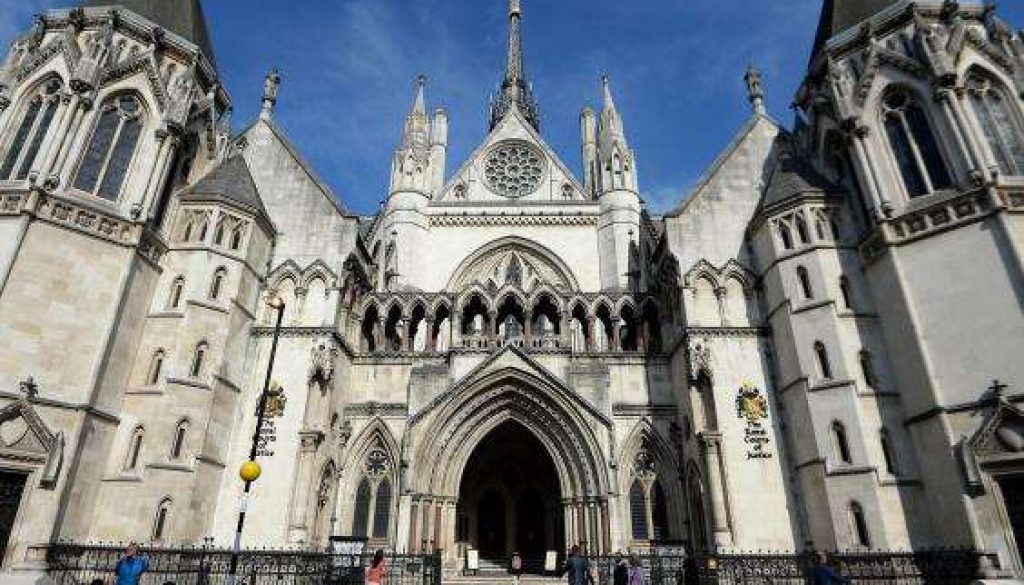“Television cameras allowed to broadcast criminals being jailed in British courts for first time”
The Independent online today carries an interesting article about a proposal to allow television broadcasting of judges’ sentencing remarks in criminal trials. The article is reproduce in its entirety below. The original can be found HERE.
Both the headline and the article itself are misleading in that, subject to permissions and conditions, the broadcasting of sentencing remarks has been permitted in Scotland since 1992 – albeit the first such broadcast was in 2012. This was in the case of our own client, David Gilroy, whose sentencing can be seen HERE.
The benefit of such limited access has been, in our view, exactly that – limited. We welcome any developments in the administration of justice that make such a fundamentally important, but largely hidden, process more open and transparent. With that in mind, we are much more encouraged by the recent filming, in Scotland, of an entire trial. Murder Trial: The Disapparance of Margaret Fleming was recently aired, in two parts on consecutive evenings, on BBC Scotland. It is currently available on the iPlayer, and well worth a look. Although, of necessity, significantly edited, this represents probably the first accurate depiction of the trial process, and of the presentation to juries of the evidence on which they are asked to reach a verdict. It has been particularly helpful to us, here at MOJO, in illustrating to our student caseworkers the stark reality of the ability of the Crown to secure convictions in circumstantial cases with no actual evidence.
Footage of criminals being jailed is to be broadcast from British courts for the first time, amid warnings that the move could spark “unwarranted attacks” on judges.
A new law will allow television cameras, which were previously banned from courtrooms, to film judges’ full sentencing remarks in cases chosen by major broadcasters.
Legal campaigners welcomed the change as a way to improve open justice and public understanding of the reasons behind sometimes controversial prison terms.
But the Bar Council, which represents barristers in England and Wales, warned that the move could turn sentencing into a “spectator sport”.
Chair Amanda Pinto QC said: “We must guard against unwarranted attacks on judges where the sentence isn’t popular with the public. ‘Enemies of the people’ type proclamations, where judges have been personally attacked and their independence questioned simply for doing their job, are completely unacceptable.”
But the Criminal Bar Association said the broadcasts must remain restricted to sentencing in order to protect witnesses and defendants.
“Victims of crime and the tax paying public need to have confidence in the court process,” chair Caroline Goodwin said.
“Judges have to follow set guidelines, which at times may not satisfy the wider appetite for swingeing sentences … often the judiciary are left with little room for discretion due to increasingly detailed, prescriptive sentencing guidelines.”
The Victims’ Commissioner for England and Wales said the decision to broadcast sentencing remarks was “well overdue”.
Dame Vera Baird said that victims, particularly survivors of violent and sexual crimes, often do not understand the reasons behind prison terms.
“For victims, there are still many parts of the criminal justice system where the decisions and actions of practitioners are not explained,” she added, calling for improvements to the way complainants are updated about police investigations and court hearings.
The Crown Court (Recording and Broadcasting) Order 2020, which will be laid in parliament on Thursday, will allow cameras to broadcast sentencing remarks by High Court and senior circuit judges in the Old Bailey and other high-profile courts across the country.
Unlike the Supreme Court, where proceedings are broadcast live online, television crews rather than the courts themselves will be responsible for filming hearings.
The law will extend practices used since 2013 in the Court of Appeal, where the three major broadcasters can apply to film judges delivering their rulings in England and Wales.
Filming will be restricted to sentencing remarks only and no one apart from judges, such as victims, witnesses, jurors and court staff, will be on camera.
Robert Buckland, the justice secretary, said the move would allow the public to see “see justice being delivered to the most serious of offenders”.
He added: “This government, alongside the judiciary, is committed to improving public understanding of our justice system and allowing cameras into the crown court will do just that.”
The BBC, ITN and Sky News, who took part in a three-month pilot in eight crown courts, have been campaigning for the change and said it would improve public understanding of the judicial process.
It follows a decline in court reporting by print outlets after years of job losses in local newspapers and news agencies.
No date has been set for the broadcasts to start, as it depends on how quickly the new law passes through parliament.
The filming will be subject to any reporting restrictions imposed by judges and edited accordingly, the Ministry of Justice said.
The Lord Chief Justice, Lord Burnett of Maldon, said he had been pressing for the change since he took office two years ago.
He added: “The courts are reported by journalists already, but this gives an extra dimension to allow people to see the sentences judges pass on convicted criminals and to understand why they interpret the law and guidelines the way they do in each case.”

![16[2]](https://mojoscotland.org/wp-content/uploads/2024/06/162-1024x768-394x330.jpg)

